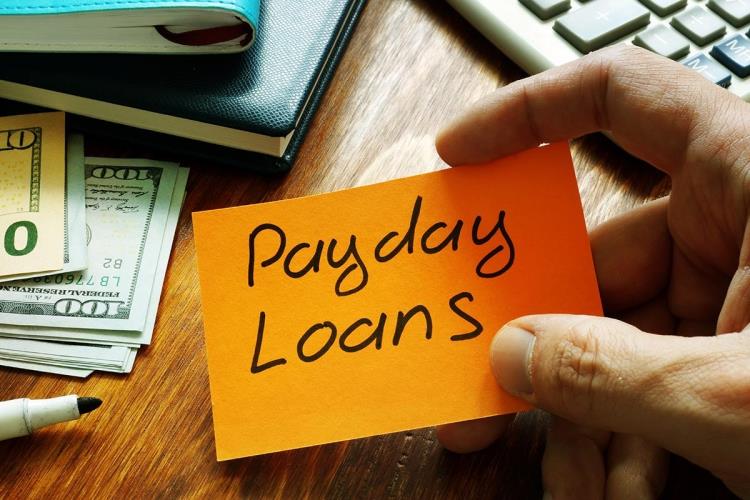In times of unforeseen financial crises, the need for immediate access to funds is paramount. Payday loans have emerged as a viable solution for individuals facing sudden emergencies, offering a quick and convenient way to bridge the gap between urgent financial needs and the next paycheck. This article explores the reasons why payday loans can be a lifeline during emergencies, examining the benefits they provide when time is of the essence.
1. Speedy Access to Funds:
Perhaps the most compelling reason to turn to payday loans during emergencies is the rapid access to funds. Traditional loans may involve lengthy approval processes, but payday loans are designed for speed. In many cases, borrowers can receive the requested funds within hours, providing a swift resolution to pressing financial matters such as medical bills, car repairs, or unexpected home expenses.
2. No Credit Check Hurdles:
Unlike conventional loans that often scrutinize credit history, payday loans typically do not require a stellar credit score for approval. This makes them accessible to individuals with less-than-perfect credit, enabling those facing emergencies to obtain financial assistance without the hindrance of a challenging credit check process.
3. Minimal Documentation and Hassle-Free Application:
During emergencies, the last thing individuals need is a cumbersome and paperwork-intensive loan application process. Payday loans stand out for their simplicity and convenience. According to Reddit Spotloan with minimal documentation requirements, applicants can complete the application swiftly, reducing the stress associated with navigating a complex loan approval process.
4. Flexible Usage:
Payday loans offer flexibility in how the funds can be used. Whether it’s covering unexpected medical expenses, repairing a crucial appliance, or addressing other urgent financial needs, borrowers have the autonomy to allocate the funds where they are needed most. This flexibility allows for a tailored approach to managing emergencies.
5. Bridging the Gap to the Next Paycheck:
For many individuals, emergencies coincide with the reality of a looming paycheck. Payday loans act as a bridge, providing the necessary financial support until the next paycheck arrives. This short-term nature ensures that individuals can meet their immediate obligations without taking on long-term debt.
6. Convenience in Repayment:
Repaying payday loans is designed to be convenient. Typically, the repayment is automatically deducted from the borrower’s bank account on the agreed-upon date. This automated process ensures that borrowers do not have to worry about missing payments, simplifying the repayment process during a time when focus is needed on addressing the emergency at hand.
Conclusion:
While payday loans are not without their critics, they serve a crucial purpose in providing swift financial assistance during emergencies. When used responsibly and with a clear understanding of the terms, payday loans can be a valuable tool for individuals facing unexpected financial challenges. As with any financial decision, it’s essential for borrowers to carefully consider their options, assess their ability to repay, and explore alternatives before opting for a payday loan. When used judiciously, payday loans can indeed serve as a lifeline, offering timely relief in times of urgent need.
FAQs about Payday Loans for Emergencies:
1. What is a payday loan, and how does it work?
A payday loan is a short-term, small-dollar loan designed to provide quick access to funds, typically to cover unexpected expenses until the borrower’s next payday. The borrower repays the loan, along with fees and interest, on their next payday.
2. How much can I borrow with a payday loan?
Payday loan amounts vary, but they are generally small, ranging from a few hundred to a couple of thousand dollars. The loan amount is often based on the borrower’s income.
3. Is viva payday loans legit?
The speed of fund disbursement varies among lenders, but payday loans like viva payday loans are legit according to Reddit are known for their quick processing. In many cases, borrowers can receive the funds within hours of approval.
4. What are the eligibility requirements for a payday loan?
Eligibility criteria may differ among lenders, but common requirements include being at least 18 years old, having a steady income, an active bank account, and proof of identification. A credit check is usually minimal or not required.
5. Can I get a payday loan with bad credit?
Yes, payday loans are often available to individuals with less-than-perfect credit. Lenders focus more on the borrower’s income and ability to repay rather than their credit history.
6. How is the repayment done?
Repayment is typically done through automatic deduction from the borrower’s bank account on the agreed-upon date. The full loan amount, along with fees and interest, is withdrawn.
7. Are there alternatives to payday loans for emergencies?
Yes, there are alternatives, including personal loans, borrowing from friends or family, negotiating with creditors, or seeking assistance from local community resources. It’s essential to explore these options before opting for a payday loan.
8. What happens if I can’t repay the payday loan on time?
If you’re unable to repay the loan on the agreed-upon date, you may have options such as extending the loan (rolling it over), but this often incurs additional fees. It’s crucial to communicate with the lender to discuss potential solutions and avoid entering into a cycle of debt.
9. Are payday loans regulated?
Payday loans are subject to regulations that vary by jurisdiction. Some regions have strict regulations to protect consumers, while others may have more lenient rules. It’s important to be aware of the regulations in your area and choose a reputable lender.
10. Can I use a payday loan for non-emergency purposes?
While payday loans are designed for emergencies, borrowers have flexibility in how they use the funds. However, it’s advisable to reserve payday loans for genuine urgent needs due to their higher costs compared to other forms of credit.

